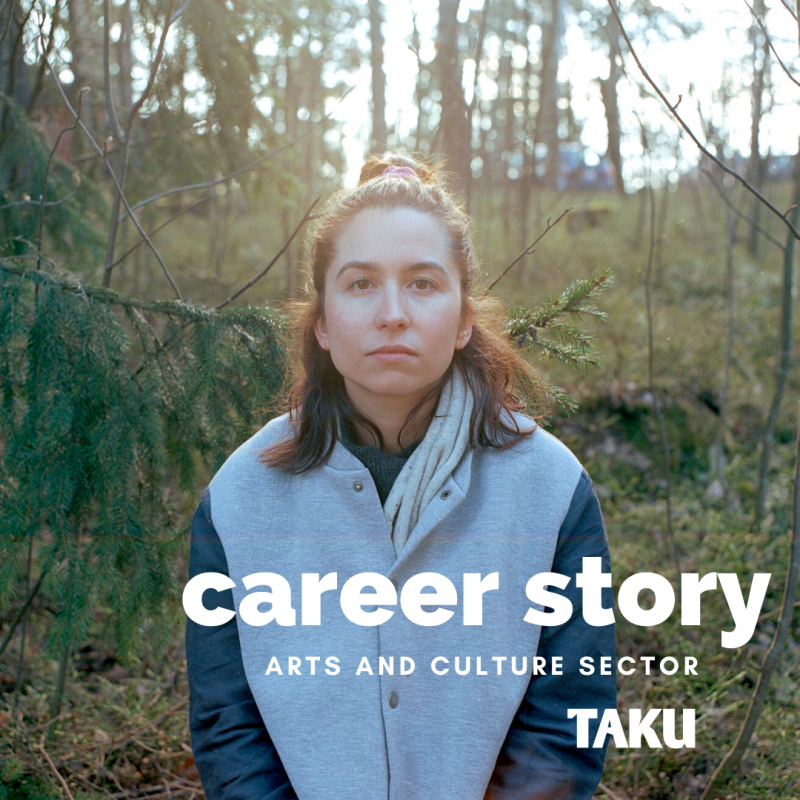Work in progress: English-language accessibility for TAKU members
3.6.2021
The pandemic has plagued the whole country. In the cultural and event sector, corona restrictions have hit harder than in other sectors, as the majority of the its activities are based on the audience economy. The events have been kept closed for too long - the industry's proposals for the phasing out of restrictions and the safe and responsible organization of the event have not been heard. Those who work in culture and event sector have been cramped by obstructing working conditions. Corona subsidies and compensations have been inadequate, received far too late and were not fully targeted. For tens of thousands of cultural and event professionals and businesses, the past 15 months have been catastrophic. Funding for culture is also at risk, as it is largely tied to declining betting profits of the gaming company Veikkaus, owned by the Finnish State.
Culture directly and indirectly produces many times the investment placed in it. Culture is a growing sector that builds civilised society and future well-being, and according to Statistics Finland, the number of jobs has increased by 20.1% in the last ten years. In 2019, the cultural sector employed 120,000 people, produced 3.3 percent of our GDP, and employed 18,000 companies with a turnover of EUR 13.4 billion. Culture, measured by numbers alone, is an area of the future in which it makes sense to invest and in which the well-being of its creators is worth investing. The same insight has already been made in many Nordic countries. Now it's Finland's turn.
The Government Program aims to increase jobs in the creative industries, increase its share of GDP and improve the working conditions of workers. The program also aims to improve the accessibility of cultural services and strengthen the preconditions for cultural activities.
We support these good goals and propose the following measures to support them:
Organising events with safety instructions starts immediately
Enabling the organisation of events, the livelihood of companies and freelancers, and the accessibility of art and culture to the public. Measures are agreed for health safety. Different audience limits are defined for outdoor and indoor areas, and the restrictions are quickly lifted as the incident rate decreases. The interpretation of section 58 of the Communicable Diseases Act must be amended to include events. The safety distance regulation of 2 meters in section 58d shall be relaxed to one meter. That order was delivered safely without detecting any new infection chains last fall. In the long run, the entire communicable disease law needs to be reformed and compensation included.
Corona subsidies for freelancers will be paid without delay; the event industry also needs start-up support after a long restriction period
The event industry as well as cultural freelancers and actors have acted responsibly throughout the pandemic and respected the coronavirus restrictions. The long period of restrictions has resulted in the cancellation of an infinite number of events, performances and projects and the loss of revenue. Freelancers have been waiting for their corona subsidies for too long. Payment must be made immediately. In order for the event industry to get back on track, it needs start-up support to ensure the recovery of companies and jobs in the industry.
From cuts to investments: at least one percent of the state budget is invested in culture
The financing of culture has relied on Veikkaus' profits, and now, with Veikkaus' revenues falling to the already scarce financing of culture, a big notch is emerging. As a result of the government's mid-term supplementary budget negotiations, cuts of EUR 17.5 million and EUR 23 million were announced in the Ministry of Education and Culture’s arts and culture budget in 2022 and 2023 due to the fact that the reductions in betting profits promised in the government program will not be compensated. The proposed cuts could mean up to 10,000 jobs lost. The allocated cultural budget is too small considering the state budget and the proposed cuts are large. A short-sighted cut into a sector that generates growth and prosperity is not worthwhile and does not support the goal of the Government Program, especially in a situation where the pandemic has already deeply damaged the sector. Funding for culture must be tied to budgetary resources and raised. Investments must be committed over government terms.
The definition of the employment relationship to be updated and the safety net for freelancers improved
It is typical for freelancers to work as self-employed persons without a permanent employment relationship with several employers or clients and the way they work varies. This atypical work is becoming more common and is nowadays a common way to earn a living. Our benefit legislation, such as unemployment insurance and pension insurance, assumes that work is done solely in an employment relationship or as an entrepreneur. The way work is done affects social security in many ways, despite the fact that everyday practice does not correspond to such a sharp dichotomy. In accordance with the Government Program, the Employment Contracts Act must be amended in such a way that camouflage of the employment relationship is prevented. By specifying the law, employment protection must be extended to those who work in conditions similar to employment relationship. An effective model of combined insurance is to be built on the basis of unemployment and business unemployment security.

